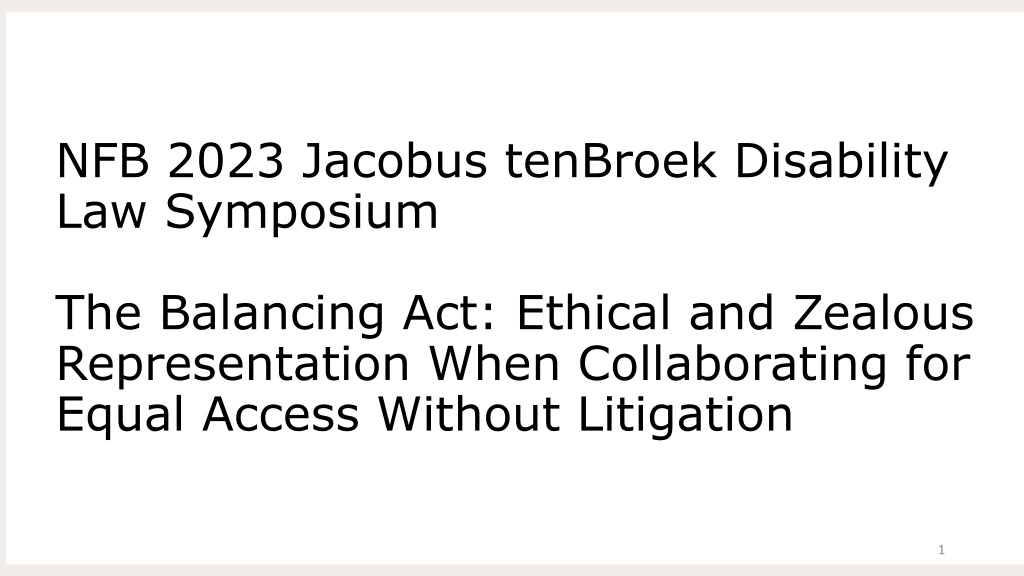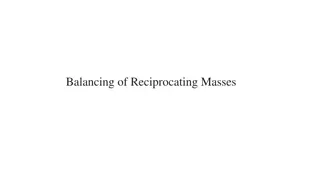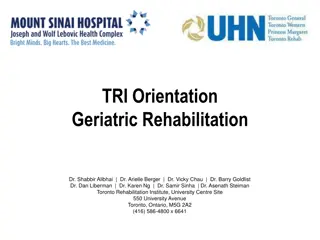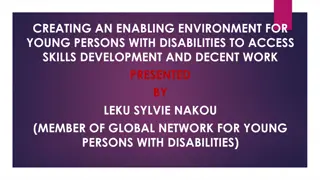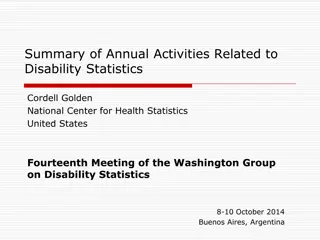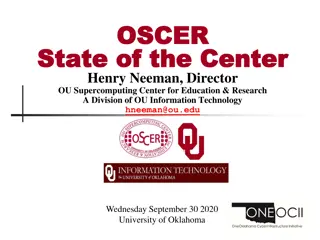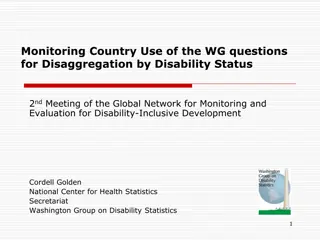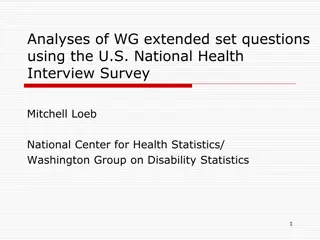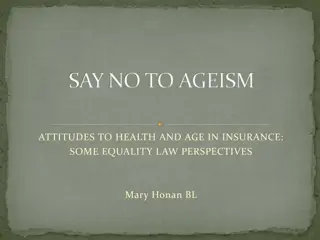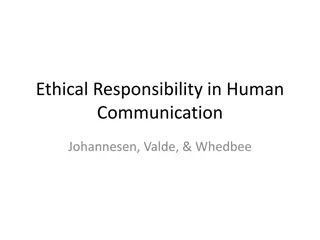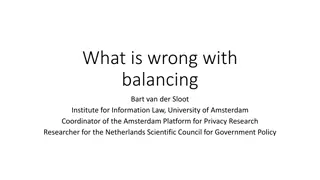Balancing Ethical Representation for Equal Access in Disability Law Symposium
Engage in discussions regarding ethical representation, challenges, and alternatives to litigation in disability law practice. Explore best practices for attorneys, including sending pre-lawsuit letters, utilizing structured negotiations, and providing insightful complaints. Consider the impact of recent developments on practices and discuss the balance between client/community interests and financial obligations. Delve into changes in the law, attorney fees, and the significance of Model Rule 3.4 in the legal landscape.
Download Presentation

Please find below an Image/Link to download the presentation.
The content on the website is provided AS IS for your information and personal use only. It may not be sold, licensed, or shared on other websites without obtaining consent from the author. Download presentation by click this link. If you encounter any issues during the download, it is possible that the publisher has removed the file from their server.
E N D
Presentation Transcript
NFB 2023 Jacobus tenBroek Disability Law Symposium The Balancing Act: Ethical and Zealous Representation When Collaborating for Equal Access Without Litigation 1
The material discussed in this presentation is intended for general information purposes only and should not be construed as legal advice. All opinions stated are the presenters. 2
Introductions Timothy Elder, TRE Legal Practice Kristina Launey, Seyfarth Shaw Morissa Fregeau, Aflac, Inc. 3
Best Practices, Pet Peeves and Challenges 4
Based on the recent developments regarding serial plaintiffs, what do you predict the outcome will be to your practice? 5
What real alternatives are there to litigation? 6
Attorneys fees: Balancing what is good for the client or community and paying the bills. Link: Is it Time to Remove Zeal From the ABA Model Rules of Professional Conduct? | Cozen O'Connor - JDSupra 7
References Model Rule 3.4 10
Best Practices: Plaintiffs Attorneys [1/2] 1. Send a letter before filing a lawsuit most companies hate / do not want a lawsuit on the public record 2. Consider structured negotiations and stay true to SN s principles 3. If you sue, don t do a lousy copy and paste job in a form complaint 4. Help the company understand what real barriers your client encountered that actually prevented him/her from accessing a good or service of the public accommodation Continued 11
BPs: Plaintiffs Attorneys [2/2] 5. Understand that some companies even those that are large and seemingly sophisticated may not be aware of this issue; or may have large structural hurdles to overcome. Do not mistake this for opposition. 6. Do your homework and understand the severity and nature of the access barriers in your case don t unnecessarily invest six figure litigation budgets on six-dollar barriers. 7. Be prepared now to try the case without relying on discovery because technology changes quickly and evidence of digital information easily spoils. 12
BPs: Defense & Compliance Attorneys [1/4] 1. Know the law. If you don t, associate with an attorney who does. 2. Always respond in writing to a demand letter well in advance of the indicated deadline many Plaintiff s counsel will agree to reasonable extensions of time to suspend a filing if there is at least some attempt at communication. 3. Never respond to a demand letter with intimidation: many Plaintiff s counsel will jump on the chance to litigate if the response to the demand letter is aggressively defensive. 4. Don t respond to a demand letter with a statement that the matter is moot and no further conversation is needed if there is any chance of catalyst theory fees or damages claims. Continued 13
BPs: Defense & Compliance Attorneys [2/4] 5. Call the Plaintiff s attorney and develop a connection you are guaranteed to learn something useful for your evaluation of the case. 6. Consider proposing structured negotiations, ADR or even arbitration to a Plaintiff who is unfamiliar with the process giving some indication that a meritorious demand will include reasonable fees may appease some Plaintiff s attorneys anxiety to rush to file the case. 7. Understand the technical issues, and when you need to bring in a digital accessibility consultant. 8. Be aware of attorney client privilege application to expert engagements. Continued 14
BPs: Defense & Compliance Attorneys [3/4] 9. Educate businesses on the state of the law, uncertainty, and practical considerations. 10.Approach plaintiffs counsel with an open mind and cooperative attitude while managing client concerns. 11.Consider a meeting in which your client speaks directly with the Plaintiff and validates any poor customer service that was provided and communicates the value of the Plaintiff in the conversation (you ll soon find out which Plaintiffs are primarily motivated by money damages and which ones simply want to have their concerns valued). Continued 15
BPs: Defense & Compliance Attorneys [4/4] 12.If you litigate, don t use discovery as a substitute for an investigation that could have been done earlier. 13.Help the Plaintiff understand any true complexities or challenges unique to your specific business operations. 14.Budget time for counsel to ensure that settlement compliance is timely and above or beyond the expectations. 16
BPs: In-house counsel [1/2] 1. Know the law and have a good understanding of the technology. 2. Cultivate relationships with your business partners. 3. Don t give legal advice in a vacuum. 4. Respond timely to complaints. 17
BPs: In-house counsel [2/2] 5. Develop policies and procedures, including a vendor policy. 6. Accessibility statement. 7. Know who you can ask questions, legal or technical. 8. Accessibility council and/or department and accessibility champions. 9. Use existing tools. (https://www.w3.org/WAI/planning-and- managing/) 18
